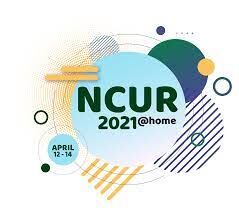Students discuss research featured at National Conference on Undergraduate Research

This year’s National Conference on Undergraduate Research was Iowa State’s fourth time attending the event, as it was canceled last year due to the COVID-19 pandemic.
April 20, 2021
Three undergraduate students in the social sciences discuss the research they recently presented at the National Conference on Undergraduate Research (NCUR). The conference was from April 12-14 and hosted over 4,000 undergraduate students, 60 of whom came from Iowa State.
Pedro Vieira Marasciulo, a senior in economics, researched the behavior of wages in the digital service industry to see whether it is exploitative of workers. Commerce is considered part of the digital service industry when the execution and delivery of the service and the hiring process are conducted virtually and commonly with vast location differences between the employer and employee. Vieira Marasciulo analyzed data from Freelancer, a website that members in the digital service industry commonly use. Vieira Marasciulo said the findings from the data indicated that wages behaved similarly as in the physical service industry, therefore not seeming to exploit workers.
“It seemed like it was not an exploitative industry, because on the supply side […] the minimum wages that the employees wanted to get paid had a relationship with the occupational wages that they would be asking for in their countries in the physical service industry,” Vieira Marasciulo said. “For the employers it seemed like there was a correlation, or at least a fiscally relevant correlation at the task-category level, meaning that the employers were looking to pay wages that were comparable to similar jobs [in the physical service industry] rather than keeping into account how much they would be paying in [the employees’] own nation’s physical service industry.”
Vieira Marasciulo said the conference, although completely virtual, was still a great experience. He also said he appreciated the help he received from Peter Orazem, a professor of economics.
“I definitely had positive feedback on my presentation, and it was definitely a great opportunity to meet other people who were doing research in economics, as well as just having the opportunity to present my work outside of Iowa State,” Vieira Marasciulo said.
Donielle McGruder, a senior in psychology, titled her presentation at NCUR, “What is the Better Motivator?: Token Economy System and Autism Spectrum Disorder.” The token economy system is the method of offering an award to a student, in this case, an autistic student, as a means of behavior modification. She said in an email she became interested in studying the effectiveness of this method while working as a teacher’s assistant.
“What sparked my interest in this topic was my previous work experience as a [teacher’s assistant or paraprofessional],” McGruder said. “When working with many of the students and using practices such as the token economy system, I became curious to how this impacted the child’s own desires to want to do these certain things.”
McGruder also said in an email that her studies led to examining methods pertaining to the self-determination theory, which is mostly used in at-home therapy and focuses more on teaching autistic kids to build better systems of internal motivation.
“After conducting my literature review, many of the studies showed that token economy systems interventions showed a positive association in behavior modification,” McGruder said. “None of the studies showed or even looked at the effects on internal motivation of the students when using the intervention. This led me to do more research into other theoretical practices that did, and I found [the practice of] self-determination theory interventions.”
Antonio Ball, a senior in sociology, presented his research project titled “The Myth of Universal Sisterhood: An Examination of The Complexities of Gender, Race, and Class” at NCUR. The concept of the “universal sisterhood” pertains to the notion that all women, regardless of race, class and other attributes, are oppressed and share a common enemy in the patriarchy. Ball said this idea is often used to ignore the fact that women of color have historically been stifled and disregarded by the mainstream feminist movement.
“While that is true that all women are in one way, shape, form or another are oppressed by sexism, it’s not sexism alone that Black women are oppressed by, there are other factors,” Ball said. “[I studied] how Black women have ultimately challenged this idea of universal sisterhood and […] how they have used this as a means to creating their own strains of both theory and practice within the feminist movement.”
Ball said attending NCUR went well for him and allowed him to experience all of his hard work paying off. He also said raising awareness on topics like the subject of his research is important and still relevant in today’s social movements.
“Black women have been historically marginalized,” Ball said. “They’ve been horribly excluded from the mainstream feminist movement […] [this issue is] relevant right now, specifically with Black women being attacked, killed, murdered on a daily basis […] I wanted to amplify the voices of these women and have their experiences rightfully displayed.”
















